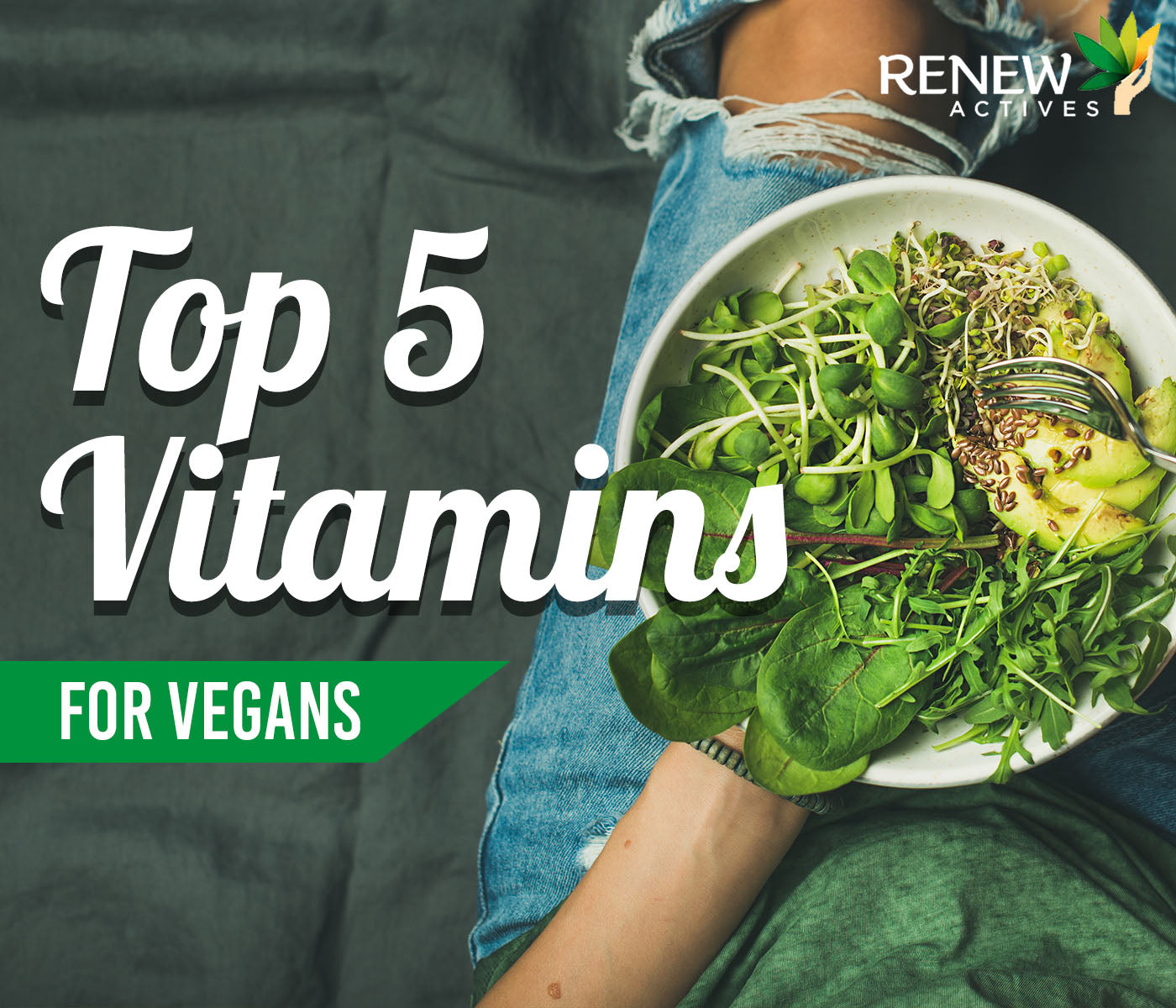
The Top 5 Vitamins for Vegans
Some people like to assume that being on a vegan diet allows you to meet all the daily nutrient requirements the body needs.
Others would even go as far as to say that vegans don’t need supplements and that it would be best for them to stay away from such.
While it’s safe to say that their intentions are noble, advice like this can sometimes become more harmful than beneficial.
You still need vitamin supplements even if you’re on a vegan diet and below are five of the top vitamins every vegan should have a daily dose of.
Calcium

Calcium is essential to teeth and bone health. It also plays an important role when it comes to heart health as well as muscle function, among others.
While there are lots of good sources of calcium to choose from like broccoli, kale, and watercress, studies seem to indicate that vegans do not get the amount of calcium the body needs.
If you think you’re not meeting the recommended daily calcium consumption (525 mg per day), it would be best to take supplements to make up for what you’re missing.
B Vitamins

B Vitamins is equally important because it contributes to the body’s overall function.
It plays an important role in improving brain function, red blood cell growth, healthy digestion, and cardiovascular health among others.
Among the eight B vitamins, vitamin B12 is considered one of the best for vegans because a lack of it can lead to other health conditions like anemia, bone disease, heart problems, and nervous system damage, just to name a few.
Ashwagandha is a good source of vitamin B12, making it an essential supplement you need to be taking daily.
Vitamin D

Next on the list is the fat-soluble vitamin called Vitamin D which comes with a ton of benefits which include muscle recovery and improved immune function, among others.
The recommended daily allowance for vitamin D is currently at 600 IU (15 mcg) per day both for children and adults.
Unfortunately, there aren’t a lot of foods that naturally contain vitamin D which should probably explain the vitamin D deficiency claims among vegans.
If you’re a vegan and you want to make sure that you’re getting the right amount of vitamin D in your body, you can either get your blood levels tested or take vitamin D supplements daily.
Including the plant moringa in your diet would also be a good choice since this miracle plant is known to be a good source of vitamin D.
Iron

Another important nutrient vegans need is iron because of its ability to create new DNA and red blood cells as well as transport oxygen in the blood.
If you’re a vegan and you believe your iron intake is low, eating more iron-rich foods would be a good place to start.
Beans, dried fruit, nuts, seeds, and turmeric are good sources of iron. Taking supplements would also be a good option though you have to be careful not to take too much because it can be harmful to the body.
To know if taking supplements is needed or not, have your hemoglobin and ferritin levels checked.
Zinc

Zinc deficiency can lead to several health issues like diarrhea, delayed wound healing, and hair loss, making it an essential nutrient everyone needs, including vegans.
The RDA for zinc is currently at 8 to 11 mg per day for adults. Unfortunately, very few plant foods contain zinc which is why vegans are encouraged to meet 1.5 times the current RDA.
To ensure that your zinc intake is more than enough, try including zinc-rich foods in your diet such as tofu, legumes, and whole grains.
You may also consider taking zinc gluconate or zinc citrate supplements daily to ensure that you’re meeting the daily RDA.
Final Thoughts
Contrary to what many people believe, being a vegan or a vegetarian doesn’t necessarily provide you all the vitamins and nutrients the body needs. The list provided should give you a better idea of the nutrients you need and where you can get them.

